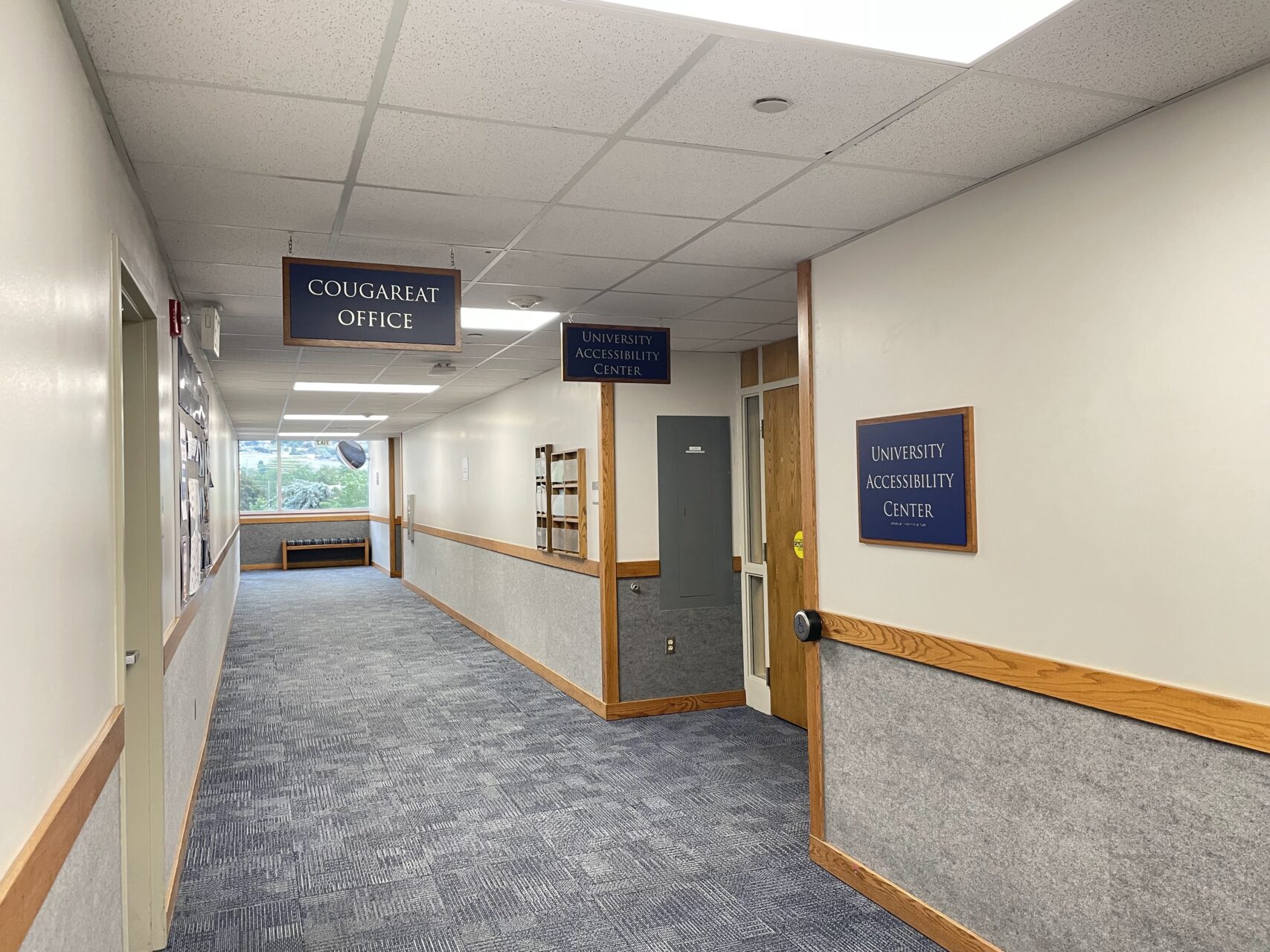
The University Accessibility Center, located in the Wilkinson Student Center behind the Cougareat, offers a variety of services for students in need of additional support.
According to their vision statement, the UAC “seeks to foster a culture recognizing disability as a valued aspect of human diversity where administrators, faculty, staff and students create accessible and inclusive environments across campus.”
Nearly 3,500 students are currently registered with the UAC office, which means about 10% of BYU students receive an accommodation of some kind, according to Ed Martinelli, the director of the University Accessibility Center. This number is well below the findings of the National Center for Education Statistics, which states that 19% of undergraduate students nationwide report having a disability.
Seeing as BYU’s numbers are lower than the national average, there may be some students who are unaware of the help they could be receiving.
Martinelli said the UAC works with students with a variety of conditions and that many students qualify for accommodation.
“I’ve seen so many diagnoses; conditions that I never even knew existed that we then try and figure out what we can do to provide help,” Martinelli said.
The UAC strives to be inclusive and works with conditions such as attention issues, emotional concerns, learning disabilities, vision and hearing issues and physical and medical concerns, Martinelli said. Accommodations are made for students who have test-taking difficulties or need on-campus housing for easier accessibility to class, Martinelli said.
Accommodations can be provided for both temporary and permanent disabilities. Students with temporary medical conditions like a broken arm or leg can be provided with assistance in the form of class accessibility and help completing coursework. Many professors indicate in their syllabi that they are willing to work directly with students in extenuating circumstances.
Clairen Cook, a freshman at BYU, works as a graphic design intern at the UAC. In addition to being part of the staff, Cook is a client of the office. Through her own experience seeking accommodations, she recognizes there are certain procedures that have to be followed that can be frustrating for those seeking assistance.
“In some ways it’s very accessible, in some ways it’s not very accessible,” Cook said.
Although Cook acknowledges the paperwork and procedures can be difficult to complete, especially for those who are already struggling, going through the process is worthwhile.
“Once you make it through the hoops, there’s a lot that they (UAC) can do to help,” Cook said.
The UAC website walks users through how to request academic accommodations and provides information for specific conditions. Proper documentation is required to receive adequate accommodations, but the office website offers advisement appointments if there are questions.
Marin Anderson, a sophomore studying design at BYU, appreciates the academic accommodations she has received through the UAC.
“Instead of the big testing area, they have a little private area they let you take your test in, so it’s not as anxiety inducing,” Anderson said.
Martinelli also explained that in some cases, there is a stigma attached to acknowledging one’s own academic challenges or needing to ask for help. Martinelli said these aversions can come from cultural or familial mindsets and sometimes keep students from receiving the help that is available to them.
Additionally, Martinelli said some students fear their professors, employers or peers will know about their condition, and they will be judged for it. However, all information is kept confidential and personal information is not shared without consent from the student, Martinelli said.
The UAC also provides opportunities for students to assist their peers by requesting note-takers, scribes, readers and campus travelers.
Several clubs on campus work with the UAC to bring awareness and support to those with physical, emotional or mental difficulties. Delta Alpha Pi is an international honors society promoting disability awareness with a local chapter at BYU. The ADHD club is also associated with the UAC and is a place for people to come together and support each other through common experiences and humor.
Students struggling with their BYU experience are encouraged to reach out to the University Accommodations Office or BYU Counseling and Psychological Services to find support and assistance for their various circumstances.




